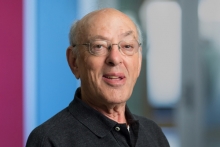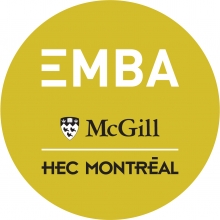Inspired by Professor Henry Mintzberg’s well-known challenging of the MBA’s relevance, a recent blog post advocates for the importance of business education today, particularly when it incorporates opportunities for hands-on learning.

When it comes to healthcare, it’s not about private versus public. Citing Professor Henry Minztberg’s latest book Managing the Myths of Healthcare, cross-sector collaboration among all stakeholders is a crucial aspect of a well-functioning system.

Fifty years ago, McGill had the good fortune of welcoming Professors Henry Mintzberg and Morty Yalovsky on board.
On August 30, members of the McGill community, along with family and friends, celebrated their contributions by establishing two teaching awards in their honour.
View the photo gallery and contribute to the awards.

Pursuing an MBA or a Masters degree is an age-old question when it comes to graduate business studies.
A recent article for QS Top Universities outlines the differences between the two options, citing Professor Henry Mintzberg along the way.

Renowned management thinker Professor Henry Mintzberg sits down with Professor Karl Moore to discuss some of his favorite subjects: the MBA degree, business strategy, and how management has changed – sometimes for the worse – in the wake of technological advancement.
At the end of the day, Mintzberg, who is sometimes referred to as a contrarian, rejects the characterization. Contrarians are contrary “for their own sake,” he says.

A recent blog post reviews the ins and outs of devising and implementing a business strategy and cites Desautels Professor Henry Mintzberg’s “Five Ps for Strategy,” namely: Plan, Pattern, Position, Ploy, and Perspective.

A piece for Harvard Business Review argues that planning does not have to be the enemy of agility in a business setting.
Citing Professor Henry Mintzberg, the author suggests revisiting the traditional planning approach to incorporate hard and soft data where judgment also plays an important role.

The Globe and Mail has listed the McGill University – HEC Montréal EMBA program as one of the best of its kind in Canada.
The high calibre of fellow classmates, the availability of scholarships and access to firsthand insights from Professor Henry Mintzberg are cited as major draws.

If major initiatives have been undertaken across sectors to combat climate change, the question arises how to consolidate these efforts for maximal impact?
Professors Henry Mintzberg, Dror Etzion and Saku Mantere address this pressing question in a recent piece for the Stanford Social Innovation Review.

A recent strategy blog post outlines three ways that businesspeople can find answers to major challenges when no precedent exists. Citing Professor Henry Mintzberg, part of the approach entails embracing uncertainty to “craft” your solution carefully over time.
In other words, it is important to think of your work as a craft, not an assembly line.

A recent piece for Bloomberg takes Professor Henry Mintzberg’s seminal 1960s work that tracked CEO time use and compares his findings with a study of modern CEOs.
As it turns out, the CEO experience has evolved considerably, especially in terms of hours worked and the nature of daily interactions.

Atypic, founded by Pascal Lépine (EMBA’12), has been named the Agency of the Year at the latest Flèches d’Or.
As an agency that seeks to boost the impact of organizations in the plural sector, Lépine credits this recognition in part to Desautels Professor Henry Mintzberg, his mentor.

With the rise of knowledge work, a new model of management referred to as emergent strategy, as defined by Professor Henry Mintzberg, is taking hold.
A recent blog post explores how emergent strategy takes form in the workplace through four models of leadership.

Professor Henry Mintzberg recently sat down with Professor Karl Moore on his CEO Series show to explore his approach to Management education via the IMPM and IMHL programs, as well as the profound societal impact the program participants are making.
Along the way, he also shares his love of Tchaikovsky and beaver sculptures, as well as what Montreal eateries are among his favorites.

This year’s McGill Alumni Association (MAA) awards ceremony recognized the accomplishments of many leading members of the Desautels community, including Donald Lewtas (BCom’75), Professor Henry Mintzberg, and Shawn Errunza (BEng’10, MDCM).
